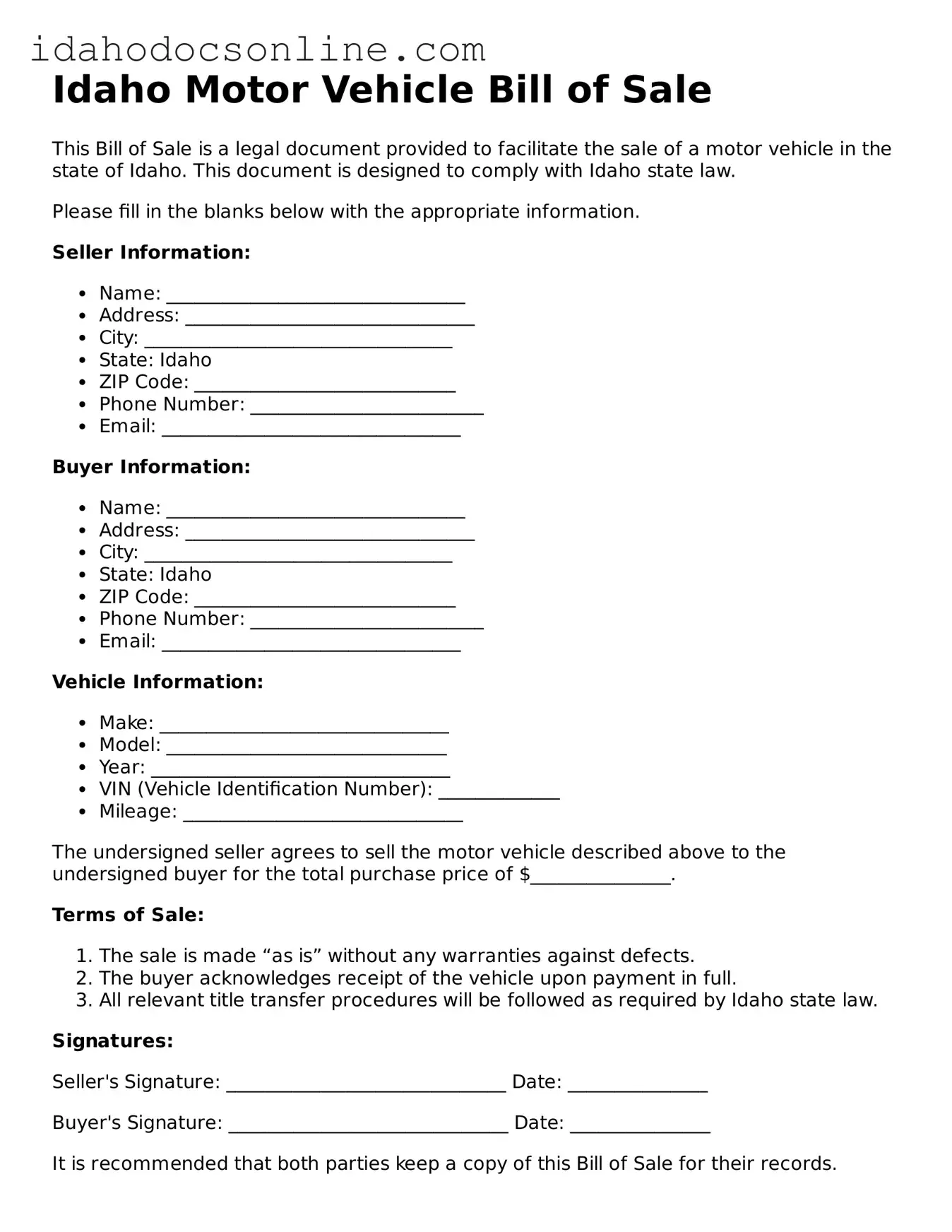Free Motor Vehicle Bill of Sale Form for Idaho
The Idaho Motor Vehicle Bill of Sale form is a legal document that serves as proof of the sale and transfer of ownership of a vehicle in Idaho. This form is essential for both buyers and sellers, as it outlines the details of the transaction, including the vehicle's identification and the agreed-upon price. To ensure a smooth transfer process, it is important to fill out this form accurately; click the button below to get started.
Fill Out Your Document

Free Motor Vehicle Bill of Sale Form for Idaho
Fill Out Your Document
Need speed? Complete the form now
Complete Motor Vehicle Bill of Sale online — edit, save, download with ease.
Fill Out Your Document
or
Free PDF
